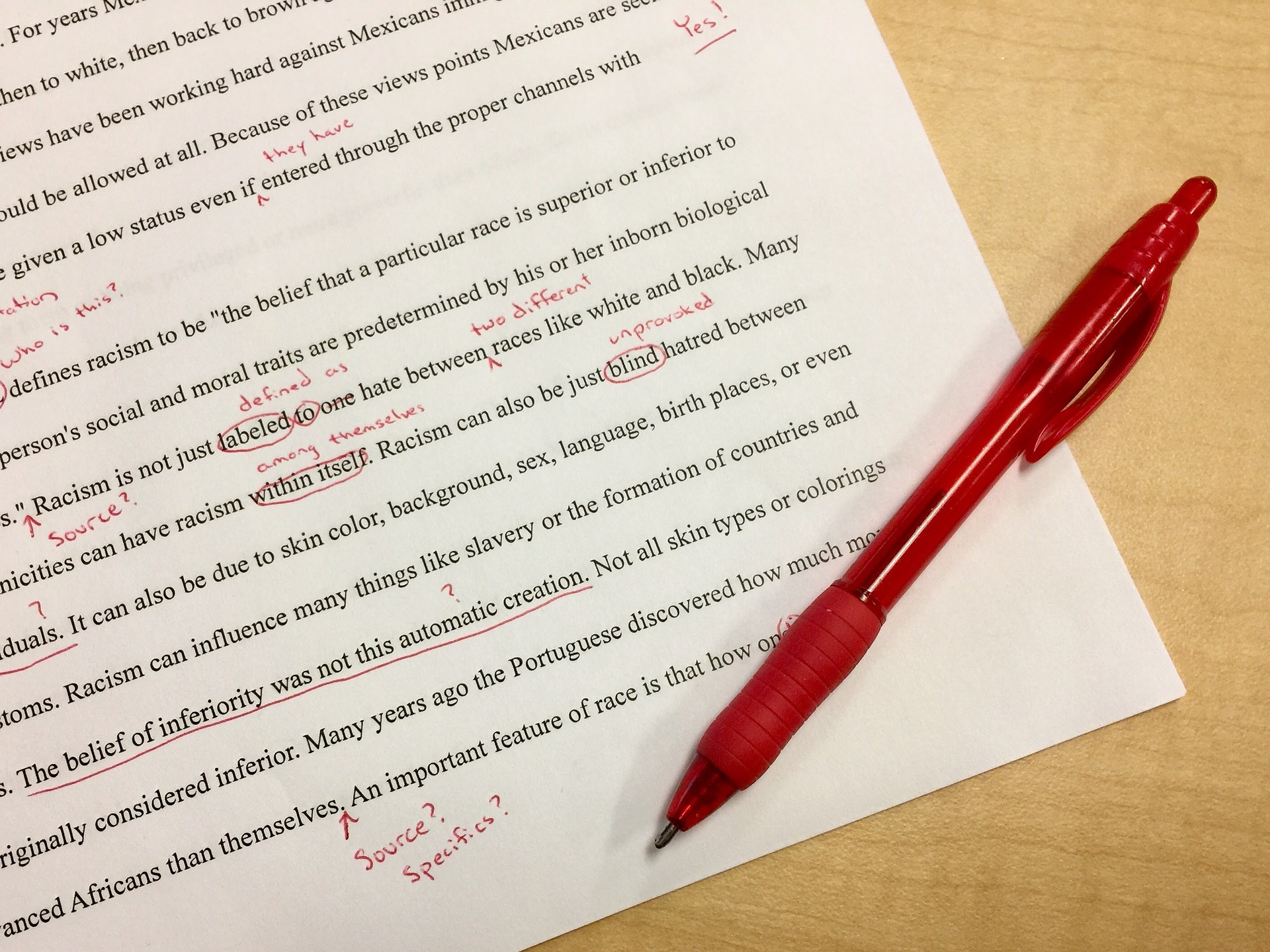 Revising isn’t the first step in the process of writing a research paper, but it is perhaps the most important. Many students skip the revision process, mistaking editing for revision. While editing is also very important, revision is an integral part of any good writing process. During revision, you should try to see your work from different perspectives and different angles. When you revise, it’s particularly important to keep your target audience in mind. You may need to make changes to content and organization. You may have to go back to the research stage of your process to find more information. You may need to cut out information that doesn’t relate to your thesis or focus. Revision is about making big changes to your writing to improve flow, development, and focus.
Revising isn’t the first step in the process of writing a research paper, but it is perhaps the most important. Many students skip the revision process, mistaking editing for revision. While editing is also very important, revision is an integral part of any good writing process. During revision, you should try to see your work from different perspectives and different angles. When you revise, it’s particularly important to keep your target audience in mind. You may need to make changes to content and organization. You may have to go back to the research stage of your process to find more information. You may need to cut out information that doesn’t relate to your thesis or focus. Revision is about making big changes to your writing to improve flow, development, and focus.
It’s best to allow some time between drafting and revision. If you can take a break from your writing and come back to it a few days or even a week later, you’re more likely to be able to see where you need to revise.
You shouldn’t begin editing until you feel confident in your revisions. Once you feel your content is where you need it to be, it’s time to begin a thorough editing process. Editing is about making changes to your sentences and surface features in your research paper. When you edit, you should check for things like grammatical errors, punctuation errors, spelling, and issues related to documentation.
Too often, students think that they can edit well with one pass or count on a grammar checker to “fix” everything, but to be a good editor, you should read over your essay many times yourself, each time focusing on a different issue. Grammar checkers are helpful tools, but they miss a lot, as you’ll see in the See It in Practice video.
A good editing practice also involves spending extra time on the issues you may have had trouble with in the past. For example, if you know you have trouble with commas, you might review the guidelines on the comma in the Grammar Essentials area of the Excelsior OWL. Then, with those guidelines fresh in your mind, edit your essay, just paying attention to your use of commas. You might then make another pass, just looking to make sure your in-text citations are correct.
Another helpful strategy is to read your essay in reverse, starting with your last sentence and going from there. This takes away the flow as you read your essay, will slow you down, and can give you an opportunity to see each sentence on its own.
